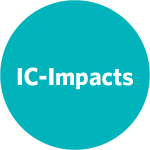There is a strong South Asian presence within the UBC student body, at approximately 10% in 2019 (AMS 2019 Academic Experience Survey Report). This reflects a demographic reality in Canada overall: speakers of South Asian languages comprise approximately 4% of the population of Canada, and 7% of the population of British Columbia. Research and teaching on South Asia is located in diverse Faculties and Departments across UBC: Arts; Applied Science; Forestry; Medicine and others. The Centre for India and South Asia Research, within the School for Public Policy and Global Affairs, is one important facet of UBC’s South Asia commitment, and is interdisciplinary in scope. Please explore our website to learn more. A sampling of other programs and initiatives at UBC overall is given below.
 The Department of Asian Studies at UBC is the premiere department in Canada dedicated to the study of Asia, and is among the strongest in North America overall. The Department is responsible for teaching a wide range of languages and their literatures, cultural history, and linguistics, and more than 3600 students have enrolled in South Asia-related content classes in the Department in the last five years. Punjabi Studies occupies a central place in the Department’s South Asia program—reflecting the numerical dominance of Punjabis in BC and in Canada—and represents one of the largest and longest-standing Punjabi-language programs in the world, outside of South Asia: in the last five years, 1200 students have taken classes in the Punjabi language at UBC. Hindi and Urdu have a strong footing in the Department, as does Sanskrit. Persian–both with a focus on Indo-Persian cultural production, and that located in present-day Iran–is a particular strength of the Department as well. Other Departments in the Faculty of Arts with strong South Asia faculty include the Departments of History and Anthropology, as well as the new School of Public Policy and Global Affairs, within which CISAR is housed.
The Department of Asian Studies at UBC is the premiere department in Canada dedicated to the study of Asia, and is among the strongest in North America overall. The Department is responsible for teaching a wide range of languages and their literatures, cultural history, and linguistics, and more than 3600 students have enrolled in South Asia-related content classes in the Department in the last five years. Punjabi Studies occupies a central place in the Department’s South Asia program—reflecting the numerical dominance of Punjabis in BC and in Canada—and represents one of the largest and longest-standing Punjabi-language programs in the world, outside of South Asia: in the last five years, 1200 students have taken classes in the Punjabi language at UBC. Hindi and Urdu have a strong footing in the Department, as does Sanskrit. Persian–both with a focus on Indo-Persian cultural production, and that located in present-day Iran–is a particular strength of the Department as well. Other Departments in the Faculty of Arts with strong South Asia faculty include the Departments of History and Anthropology, as well as the new School of Public Policy and Global Affairs, within which CISAR is housed.
 IC-IMPACTS (the India-Canada Centre for Innovative Multidisciplinary Partnerships to Accelerate Community Transformation and Sustainability) is the first, and only, Canada-India Research Centre of Excellence established through the Canadian Networks of Centres of Excellence (NCE) as a new Centre dedicated to the development of research collaborations between Canada and India. Built upon the vision of three of Canada’s leading research universities – The University of British Columbia, the University of Alberta, and the University of Toronto – IC-IMPACTS is a pan-Canadian Centre bringing together researchers, industry innovators, community leaders, government agencies, and community organizations from across India and Canada, to work hand-in-hand to find solutions to the key challenges that affect the quality of life of millions of people in Indian and Canadian communities.
IC-IMPACTS (the India-Canada Centre for Innovative Multidisciplinary Partnerships to Accelerate Community Transformation and Sustainability) is the first, and only, Canada-India Research Centre of Excellence established through the Canadian Networks of Centres of Excellence (NCE) as a new Centre dedicated to the development of research collaborations between Canada and India. Built upon the vision of three of Canada’s leading research universities – The University of British Columbia, the University of Alberta, and the University of Toronto – IC-IMPACTS is a pan-Canadian Centre bringing together researchers, industry innovators, community leaders, government agencies, and community organizations from across India and Canada, to work hand-in-hand to find solutions to the key challenges that affect the quality of life of millions of people in Indian and Canadian communities.
 India’s geographical, cultural and linguistic diversity has always been a rich learning opportunity for students and Faculty members of UBC. This could not be more evident than when students of the Master of Public Policy and Global Affairs (MPPGA) program worked with various organizations in India as part of their Capstone Project. From the very first year of the program in 2016, the MPPGA program has sent multiple teams of graduate students to India to work with a variety of institutions including two NGOs, a social enterprise, a think tank and a Government Department.
India’s geographical, cultural and linguistic diversity has always been a rich learning opportunity for students and Faculty members of UBC. This could not be more evident than when students of the Master of Public Policy and Global Affairs (MPPGA) program worked with various organizations in India as part of their Capstone Project. From the very first year of the program in 2016, the MPPGA program has sent multiple teams of graduate students to India to work with a variety of institutions including two NGOs, a social enterprise, a think tank and a Government Department.
 Over the course of 2019-21, the UBC Punjabi in BC Oral History project is documenting the history of the Punjabi language in BC, and the lives and activities of the people who made it happen, focusing on teachers and institutions where Punjabi has been taught, and on writers who have written in the language and built institutions to support Punjabi language and literature. The project involves undergraduate students as interviewers and filmmakers. It is made possible by the Punjabi Studies Oral History Research and Program Development Project, 2019-2021, funded by UBC’s Office of the Vice President for Research and Innovation, through their Program for Undergraduate Research Experience (PURE).
Over the course of 2019-21, the UBC Punjabi in BC Oral History project is documenting the history of the Punjabi language in BC, and the lives and activities of the people who made it happen, focusing on teachers and institutions where Punjabi has been taught, and on writers who have written in the language and built institutions to support Punjabi language and literature. The project involves undergraduate students as interviewers and filmmakers. It is made possible by the Punjabi Studies Oral History Research and Program Development Project, 2019-2021, funded by UBC’s Office of the Vice President for Research and Innovation, through their Program for Undergraduate Research Experience (PURE).
 UBC’s Himalaya Program draws upon faculty expertise, student engagement, and community partnerships to create an interdisciplinary hub for sharing knowledge about the Himalayan region, including Bhutan, China, India, Nepal, Pakistan, and the Tibetan cultural zones that traverse all of these countries. Since 2015, initial projects have included developing language and community engagement summer intensive program which offers opportunities for learning Nepali and Tibetan; developing a speaker and event series; and creating an interdisciplinary network across UBC and the broader Vancouver community.
UBC’s Himalaya Program draws upon faculty expertise, student engagement, and community partnerships to create an interdisciplinary hub for sharing knowledge about the Himalayan region, including Bhutan, China, India, Nepal, Pakistan, and the Tibetan cultural zones that traverse all of these countries. Since 2015, initial projects have included developing language and community engagement summer intensive program which offers opportunities for learning Nepali and Tibetan; developing a speaker and event series; and creating an interdisciplinary network across UBC and the broader Vancouver community.